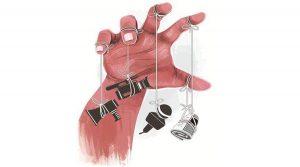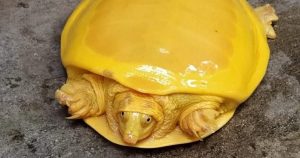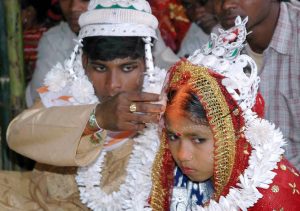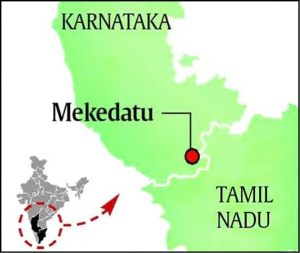Today Current Affairs: 23rd December 2021 for UPSC IAS exams, State PSC exams, SSC CGL, State SSC, RRB, Railways, Banking Exam & IBPS, etc
Table of Contents
James Webb Space Telescope:

NASA has announced the launch of the James Webb Space Telescope (JWST) on December 24.
- Webb, the world’s premier space science observatory, will succeed the Hubble Space Telescope, NASA’s flagship telescope that has been in service for more than three decades now.
- JWST is a joint venture between the US (Nasa), European (Esa) and Canadian space agencies (CSA).
- It is an orbiting infrared observatory that will complement and extend the discoveries of the Hubble Space Telescope, with longer wavelength coverage and greatly improved sensitivity.
- Webb was formerly known as the “Next Generation Space Telescope” (NGST) and it was renamed in 2002 after a former NASA administrator, James Webb.
- It will be a large infrared telescope with an approximately 6.5 meter primary mirror.
Objectives and functions of the telescope:
- It will look deeper into the cosmos – and thus further back in time – than is possible with Hubble.
- It will do this with a much bigger mirror (6.5m in diameter versus 2.4m) and instruments that are tuned to the infrared.
- Scientists hope this set-up can detect the light from the very first population of stars in the Universe to switch on more than 13.5 billion years ago.
World Press Freedom Index:

The Centre does not agree with the conclusions drawn by Reporters Without Borders about press freedom in India for various reasons, including very low sample size and little or no weightage to the fundamentals of democracy, the Information and Broadcasting Ministry told the Lok Sabha.
- In a written reply to a question on India being placed 142 out of 180 countries in the World Press Freedom Index, Information and Broadcasting Minister said the adoption of the methodology by the publisher of the report is “questionable and non-transparent”.
- The World Press Freedom Index is published by a foreign non-government-organisation, Reporters Without Borders.
- The Minister said the government was committed to ensuring the right to freedom of speech and expression enshrined under Article 19 of the Constitution.
Open Acreage Licensing Programme(OALP) Bid Round-VII:

In continuation of its aggressive programme for exploration and adhering to the prescribed timelines, the Government has launched the Open Acreage Licensing Programme(OALP) Bid Round-VII for International Competitive Bidding.
- The bids can be submitted through a dedicated online e-bidding portal till 1200 hrs. on February 15, 2022. Award of these blocks is likely be completed by the end of March 2022.
- Successful award of Round-VII Blocks would add further 15,766 sq. km of exploration acreage and cumulative acreage under OALP will be increased to 207,692 sq. km.
- The Hydrocarbon Exploration and Licensing Policy (HELP) was approved in March 2016.
- In continuation to its determination for reduction in import dependency of oil and gas and accelerating E&P activities, the Government notified the further policy reforms in Exploration and Licensing Policy in February, 2019.
- The focus was shifted from ‘revenue’ to ‘production’ maximization’.
- Since the launch of HELP on 30 March 2016, five rounds of OALP have been concluded for 105 E&P blocks; award of 21 blocks under sixth round of OALP is under progress.
- These 126 blocks comprise about 191,926 sq.km. of area spread across 18 sedimentary basins.
- The Hydrocarbon Exploration & Licensing Policy (HELP), which adopts the Revenue Sharing Contract model, is a significant step towards improving the ‘Ease of Doing Business’ in the Indian Exploration and Production (E&P) sector.
First AgriTech Challenge Cohort:

Atal Innovation Mission (AIM), NITI Aayog and the United Nations Capital Development Fund (UNCDF) rolled out their first AgriTech Challenge cohort for its ambitious innovative Agri-tech program that aims to help smallholder farmers across Asia and Africa to address their challenges in the aftermath of the pandemic.
- AIM, NITI Aayog in partnership with UNCDF, Bill & Melinda Gates Foundation and Rabo Foundation launched a South-South innovation platform to enable cross-border exchange of innovations, insights and investments in July this year 2021.
- Through this platform, cross-border collaborations among emerging markets across India, Indonesia, Malawi, Malaysia, Kenya, Uganda, Zambia would be enabled.
- For its first platform AgriTech Challenge Cohort and Agri-Fintech innovators, applications were invited to facilitate their expansion to the international markets through two tracks- Main track and AIM track.
- The key objective of the main track applications was ‘Expansion – Support solution pilot in the chosen international market.’
- The Cohort represents a diverse range of solutions across the value chain of the smallholder farmer, including soil analysis, farm management & intelligence, dairy ecosystem, carbon credits, solar-based cold storage, digital marketplace, fintech, livestock insurance, among others.
Albino Indian Flapshell Turtle:

A rare species of Albino Indian Flapshell turtle was recently sighted by Mountaineers in Sirnapalli forest in Telangana’s Nizamabad.
- The Indian flapshell turtle is commonly found in South Asian countries like Pakistan, Sri Lanka, India, Nepal, Bangladesh and Myanmar.
- The rare yellow color of the turtle may be due to the lack of a pigment called tyrosine present in high amounts in reptiles.
- A genetic mutation or possible congenital disorder is likely responsible for the lack of tyrosine.
- Indian flapshell turtles are typically are only 9 to 14 inches (22 centimeters to 35 centimeters) long, and like to eat frogs, snails and aquatic vegetation.
- Conservation Status:
- IUCN Red List: Vulnerable.
- CITES: Appendix II.
- Wildlife (Protection) Act, 1972: Schedule I.
Prohibition Of Child Marriage (Amendment) Bill, 2021:

Lok Sabha has sent the Prohibition of Child Marriage (Amendment) Bill, 2021 which seeks to raise the age of marriage for women to 21 to a standing committee.
- The age of marriage should be uniformly applicable to all religions, caste, creed, overriding any custom or law that seeks to discriminate against women.
The Bill would also amend:
- The Indian Christian Marriage Act, 1972.
- The Parsi Marriage and Divorce Act, 1936.
- The Muslim Personal Law (Shariat) Application Act, 1937.
- The Special Marriage Act, 1954.
- The Hindu Marriage Act, 1955.
- The Foreign Marriage Act, 1956.
The Belagavi Border Dispute:

An inter-state dispute between Karnataka and Maharashtra dating back to the period of Independence and the reorganisation of states on linguistic lines in 1956 has reared its head again in the Belagavi region of Karnataka.
- The latest flashpoint is following a series of minor incidents over the last week that have inflamed pro-Kannada and pro-Marathi passions on the two sides of the border.
- The erstwhile Bombay Presidency, a multilingual province, included the present-day Karnataka districts of Vijayapura, Belagavi, Dharwad and Uttara-Kannada.
- In 1948, the Belgaum municipality requested that the district, having a predominantly Marathi-speaking population, be incorporated into the proposed Maharashtra state.
- However, the States Reorganisation Act of 1956, which divided states on linguistic and administrative lines, made Belgaum and 10 talukas of Bombay State a part of the then Mysore State (which was renamed Karnataka in 1973).
The Mahajan Commission report:
- While demarcating borders, the Reorganisation of States Commission sought to include talukas with a Kannada-speaking population of more than 50 per cent in Mysore.
- Opponents of the region’s inclusion in Mysore argued, and continue to argue, that Marathi-speakers outnumbered Kannadigas who lived there in 1956.
- In September 1957, the Bombay government echoed their demand and lodged a protest with the Centre, leading to the formation of the Mahajan Commission under former Chief Justice Mehr Chand Mahajan in October 1966.
- The Commission in its report in August 1967 recommended that 264 villages be transferred to Maharashtra (which formed in 1960) and that Belgaum and 247 villages remain with Karnataka.
The Mekedatu Project:

Karnataka has demanded that the Cauvery Water Management Authority (CWMA) give clearance for the detailed project report (DPR) of Mekedatu Balancing Reservoir Project in its next meeting.
- Tamil Nadu has protested against Karnataka’s move to build a reservoir on river Cauvery at Mekedatu.
- However, the Karnataka Government has asserted that there is no “compromise” on the Mekedatu project and the state wants to undertake the project.
- The Centre has said the project required the approval of the Cauvery Water Management Authority’s (CWMA).
- The Detail Project Report (DPR) sent by Karnataka was tabled in the CWMA several times for approval, but the discussion on this issue could not take place due to a lack of consensus among party states Karnataka and Tamil Nadu.
- Also, as per the Cauvery Water Dispute Tribunal‘s final award, which was modified by the Supreme Court, acceptance of CWMA would be a prerequisite for consideration of the DPR by the Jal Shakti Ministry.
- Since the project was proposed across an inter-state river, it required approval of lower riparian state(s) as per the interstate water dispute act.
About the Project:
- Mekedatu is a multipurpose (drinking and power) project.
- It involves building a balancing reservoir, near Kanakapura in Ramanagara district in Karnataka.
- The project once completed is aimed at ensuring drinking water to Bengaluru and neighboring areas (4.75 TMC) and also can generate 400 MW power.
- The estimated cost of the project is Rs 9,000 crore.
It says, the CWDT and the SC have found that the existing storage facilities available in the Cauvery basin were adequate for storing and distributing water so Karnataka’s proposal is ex-facie (on the face of it) untenable and should be rejected outright.
- It has also held that the reservoir is not just for drinking water alone, but to increase the extent of irrigation, which is in clear violation of the Cauvery Water Disputes Award.
- The tribunal was set up in 1990 and made its final award in 2007, granting 419 tmcft of water to Tamil Nadu, 270 tmcft to Karnataka, 30 tmcft to Kerala and 7 tmcft to Puducherry.
- The tribunal ordered that in rain-scarcity years, the allocation for all would stand reduced.
- However, both Tamil Nadu and Karnataka expressed unhappiness over the allocation and there were protests and violence in both states over water-sharing.
- That saw the Supreme Court take up the matter and, in a 2018 judgment, it apportioned 14.75 tmcft from Tamil Nadu’s earlier share to Karnataka.
- The new allocation thus stood at 404.25 tmcft for Tamil Nadu while Karnataka’s share went up to 284.75 tmcft.
- The share for Kerala and Puducherry remained unchanged.
Chillai Kalan:

Kashmir is in a deep freeze as the 40-day harshest spell of winter, locally called ‘chillai kalan’, started on December 21, 2021, with the minimum temperature already sub-zero in the entire Valley.
- Chillai Kalan or Chillia Kalan is a Persian word which literally means forty days of intense cold.
- It is the local name given to 40 day period of harsh winter in Kashmir.
- It is the coldest part of winter, starting from 21 December to January 29 every year.
- Chillai-Kalan is followed by 20-day long Chillai Khurd (small cold) that occurs between January 30 and February 18 and a 10-days long Chillai Bachha (baby cold) which is from February 19 to February 28.
- Impact of Chillai Kalan on daily life of Kashmiris: Use of Pheran (Kashmiri dress) and a traditional firing pot called Kanger increases.
- Due to subzero temperature, tap water pipelines freeze partially during this period and world-famous Dal Lake also freezes.
Anti-National:

The word ‘anti-national’ has not been defined in statutes, the Ministry of Home Affairs (MHA) informed the Lok Sabha.
- It added that ‘anti-national activity’ was inserted in the Constitution during Emergency in 1976 but was removed later.
- The Constitution (Forty–Second Amendment) Act, 1976 inserted in the Constitution Article 31D (during Emergency) which defined ‘anti-national activity’ and this Article 31D was, subsequently, omitted by the Constitution (Forty-third Amendment) Act, 1977.
- The word ‘anti-national’ has not been defined in statutes.
- However, there are criminal legislation and various judicial pronouncements to sternly deal with unlawful and subversive activities which are detrimental to the unity and integrity of the country.
- In 2019, when the National Crime Records Bureau released the annual ‘Crime in India’ report for 2017, it included for the first time a chapter on ‘Crime Committed by Anti National Elements’.
- The chapter listed “North East insurgents, Left Wing Extremists and Terrorists (including Jihadi terrorists)” as the three anti-national elements.




